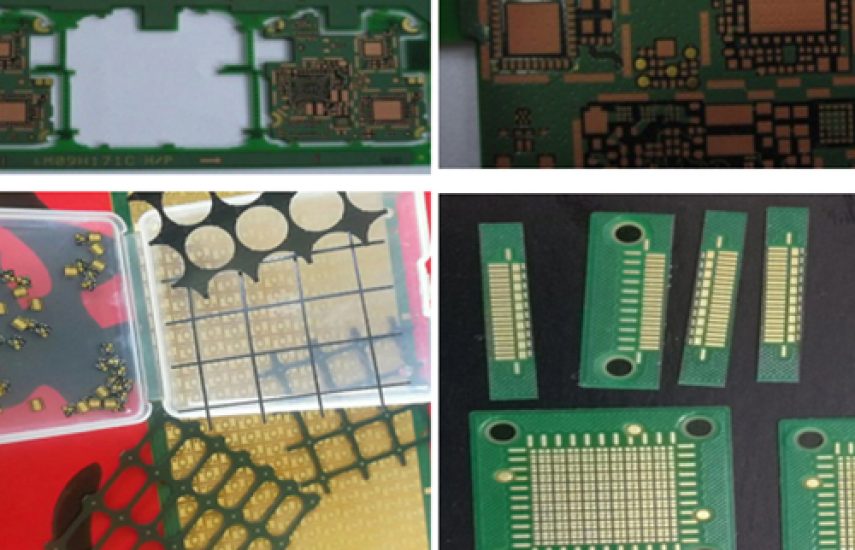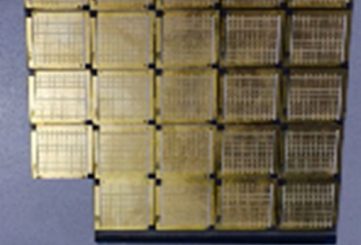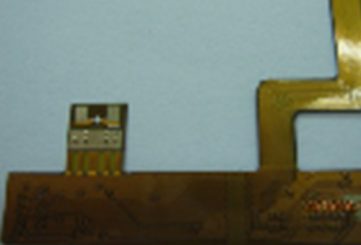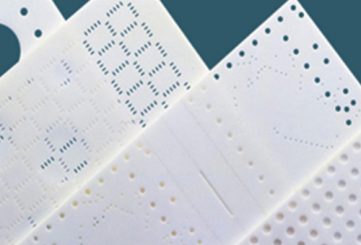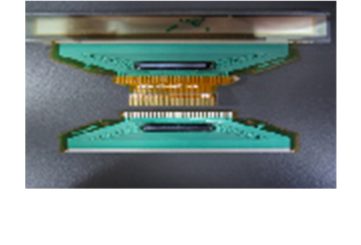PCB and Fiberglass Cutting and Forming
PCB and Fiberglass Cutting and Forming – Precision Process for High-Performance Electronic Substrates
PCB and Fiberglass Cutting and Forming is a high-precision laser machining process designed to produce intricate components from printed circuit boards (PCBs) and fiberglass substrates for medical and electronic applications. Utilizing advanced five-axis laser cutting technology, this process ensures exceptional accuracy, clean cuts, and a burr-free finish. Crafted from materials such as FR4 fiberglass and copper-clad laminates, the resulting components offer excellent electrical insulation, thermal stability, and durability, making them ideal for medical diagnostic devices, electronic circuits, and industrial control systems. The laser-cut design delivers smooth edges and complex patterns, optimizing performance in demanding environments. Tailored for high-precision applications, this process meets the rigorous standards of modern healthcare and electronics manufacturing.
Key Features:
- Ultra-Precise Cutting: Seam width of 15–30 µm with machining accuracy of ≤±10 µm for intricate circuit designs.
- Burr-Free Edges: Smooth surfaces ensure reliable performance and safe integration in sensitive applications.
- High Electrical Insulation: FR4 fiberglass provides excellent dielectric properties for circuit reliability.
- Thermal Stability: Resists high temperatures, suitable for demanding medical and industrial environments.
- Material Versatility: Compatible with FR4, copper-clad laminates, and other PCB substrates.
- Automated Production: Continuous feeding system ensures high efficiency and consistent quality.
Certification and Standards:
Certified under ISO 9001 and ISO 13485 for quality management. Compliant with CE and FDA regulations for medical device safety and efficacy.
PCB (Printed Circuit Board):
- Durability: Rigid structure ensures long-term stability in medical and industrial electronics.
- High Conductivity: Supports efficient electrical performance for complex circuit designs.
- Customizability: Allows multi-layer configurations for advanced functionality in diagnostic devices.
- Thermal Stability: Resists high temperatures, suitable for demanding operational environments.
PET (Polyethylene Terephthalate):
- Chemical Resistance: Withstands exposure to medical and industrial chemicals for reliable performance.
- Flexibility and Strength: Combines durability with flexibility for use in flexible displays and sensors.
- Cost-Effective: Economical material for large-scale production of medical and electronic components.
- Transparency: Ideal for optical applications in diagnostic and laboratory devices.
PI (Polyimide):
- High Thermal Stability: Withstands temperatures up to 400°C, perfect for high-heat medical and industrial applications.
- Excellent Dielectric Properties: Ensures reliable insulation in flexible circuits and sensors.
- Chemical Resistance: Resists harsh chemicals, enhancing longevity in medical environments.
- Flexibility: Supports intricate designs in compact, high-performance electronic devices.
Copper Foil:
- Superior Conductivity: Offers excellent electrical conductivity for high-performance circuits and probes.
- Corrosion Resistance: Ensures durability in medical and industrial environments with minimal degradation.
- Thin and Lightweight: Enables precision applications in electronics and medical sensors.
- Malleability: Easily shaped for intricate designs in circuit boards and conductive components.
Aluminum Foil:
- Lightweight: Low density reduces overall weight in medical and industrial applications.
- Corrosion Resistance: Resists oxidation, ensuring durability in harsh environments.
- High Conductivity: Supports efficient electrical and thermal performance in electronic components.
- Cost-Effective: Affordable material for large-scale production of precision parts.
Fiberglass (FR4):
- High Electrical Insulation: Provides excellent dielectric properties for reliable circuit performance in medical and electronic devices.
- Thermal Stability: Resists temperatures up to 150°C, ideal for high-heat medical and industrial applications.
- High Strength-to-Weight Ratio: Offers robust structural integrity while remaining lightweight for compact designs.
- Corrosion Resistance: Withstands harsh chemical environments, ensuring durability in medical and industrial settings.
- Medical Devices: Produces precision PCB components for diagnostic and monitoring equipment.
- Electronic Circuits: Creates intricate layouts for consumer electronics and industrial control systems.
- Diagnostic Equipment: Supports high-precision substrates for imaging and laboratory devices.
- Industrial Automation: Used in robust PCB components for robotics and control systems.
- Medical Device Manufacturing: Incorporated in the production of advanced electronic substrates.
- Material: FR4 Fiberglass, Copper-clad Laminates
- Thickness: 0.2–3.2 mm
- Cutting Seam Width: 15–30 µm
- Machining Accuracy: ≤±10 µm
- Surface Roughness: Ra <0.2 µm
- Manufacturing Process: Five-axis laser cutting with automated feeding
- Operating Temperature: -20°C to 150°C, suitable for high-heat applications
- Degradation: Non-degradable, designed for long-term stability

